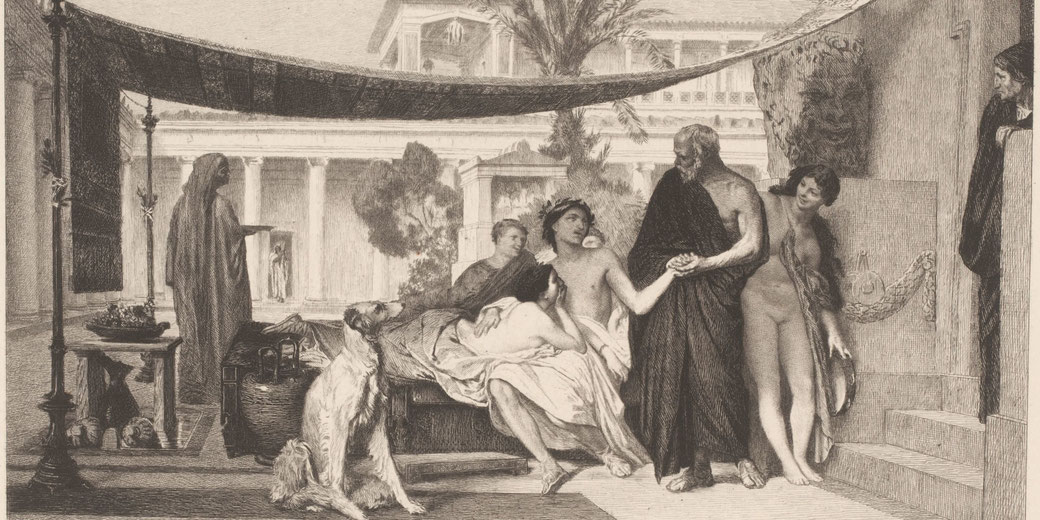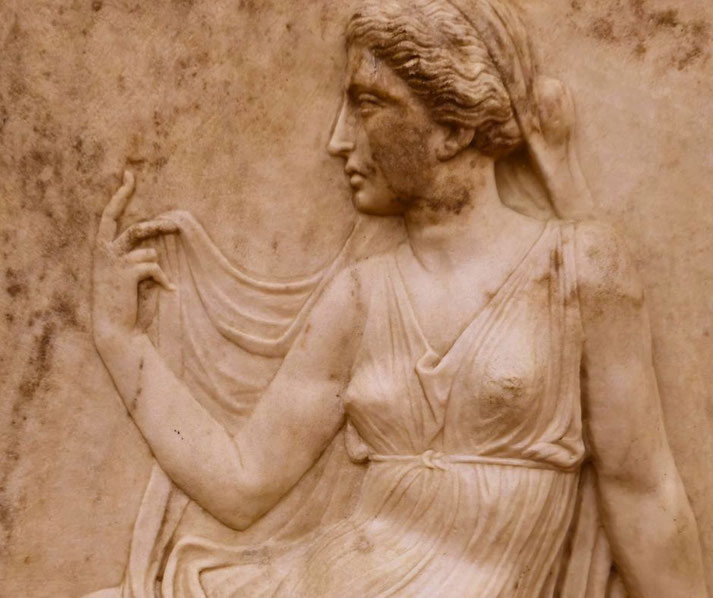The dramatic life of Aspasia and her scandalous relationship with Pericles

Aspasia of Miletus became one of the most controversial women of classical Athens during the city’s Golden Age, and her life showed the unique position she held as a foreign-born woman who moved among thinkers and political leaders.
Ancient writers described her as a companion to philosophers, an adviser to Pericles, and a target for comic poets who mocked her influence over Athenian politics.
Her story has continued to interest historians because it provided rare evidence of how a woman without citizenship could still gain public standing in a society that usually limited women’s involvement in political life.
The mystery around Aspasia’s arrival in Athens
Aspasia may have been born as early as 500 BC, but today’s estimates place her birth closer to 470 BC.
She came from Miletus, which was a wealthy Ionian city on the western coast of Asia Minor that had long been a centre for trade merchants.
She likely came from a family that possessed considerable resources, because a young woman could not have made the journey across the Aegean Sea without enough money, education, and social connections.
Ancient sources did not explain the reason for her move, yet her decision to settle in Athens had significant effects on her later life.
Aspasia entered the city as a metic, which was the legal term for a resident alien who paid a special tax and had no political rights.
Metics were barred from land ownership and citizenship, but they could take part in trade and other jobs that supported the city’s economy.
Later writers described her as a hetaera, an educated companion who could attend symposiums, discuss ideas, and build long relationships with powerful men, yet her exact social role is unclear.
Thanks to her position, Aspasia gained opportunities to meet important Athenians who valued witty conversation and a robust exchange of ideas.
Writers of the classical era provided different accounts of how she entered Pericles’ social circle.
Plutarch stated that her intelligence and speaking ability impressed important people in the city.
Later sources such as Aeschines Socraticus claimed that she taught rhetoric to Pericles and even Socrates, though Plato himself never made this claim.
Comic writers such as Aristophanes mocked her influence over Pericles, and Plutarch recorded that some blamed her for the Samian War, yet there is little evidence that these accusations were made directly in remaining plays.
Her fame, therefore, rested on both her relationship with Pericles and her reputation as a woman of rare intellect in Athens.

Relationship with Pericles
Pericles led Athenian politics from 461 BC until his death in 429 BC, and he oversaw the city’s cultural and military peak.
He separated from his first wife in the early 440s and then lived openly with Aspasia, whose foreign status prevented her from being his legal wife.
Ancient authors stressed that Pericles treated her with unusual affection and respect, and their relationship became a source of scandal among more traditional Athenians.
The couple had one son, Pericles the Younger, whose birth raised a prickly legal issue under the citizenship law that Pericles himself had introduced in 451 BC.
The law restricted citizenship to those with two Athenian parents, which meant that their son could not be a citizen.
After the plague of 429 BC killed Pericles’ lawful sons, the Athenians passed a special order to grant citizenship to Pericles the Younger.
Ancient sources repeated stories that accused Aspasia of influencing Pericles’ political decisions, and Plutarch wrote that she faced charges of disrespect to the gods and corrupting Athenian women.
These stories cannot be verified, but they suggest that she was a focus of political attacks on Pericles.
Later accounts said that Pericles personally defended her in court, where she was acquitted.

What happened to Aspasia?
Pericles died in 429 BC during the plague that struck Athens in the early stages of the Peloponnesian War, and his death left Aspasia without the protection of her powerful partner.
Later accounts stated that she entered a relationship with Lysicles, a wealthy Athenian citizen who soon achieved popularity as a political leader.
Plutarch wrote that Aspasia advised him on public affairs and helped to advance his career, but it is unclear whether they legally married because her status as a metic would have prevented such a union.
Lysicles was killed during a military campaign in 428 BC, and Aspasia disappeared from historical records soon afterwards.
Sadly, no ancient author recorded the details of her final years, yet her name continued to appear in later philosophical and historical writings.
Writers remembered her as a woman whose intelligence allowed her to move in circles that were normally closed to women in Athens.
Her reputation became part of debates about the role of women and the power of rhetoric, and her link with Pericles ensured that her life story survived long after the events of the fifth century BC.
What do you need help with?
Download ready-to-use digital learning resources
Copyright © History Skills 2014-2025.
Contact via email
With the exception of links to external sites, some historical sources and extracts from specific publications, all content on this website is copyrighted by History Skills. This content may not be copied, republished or redistributed without written permission from the website creator. Please use the Contact page to obtain relevant permission.





